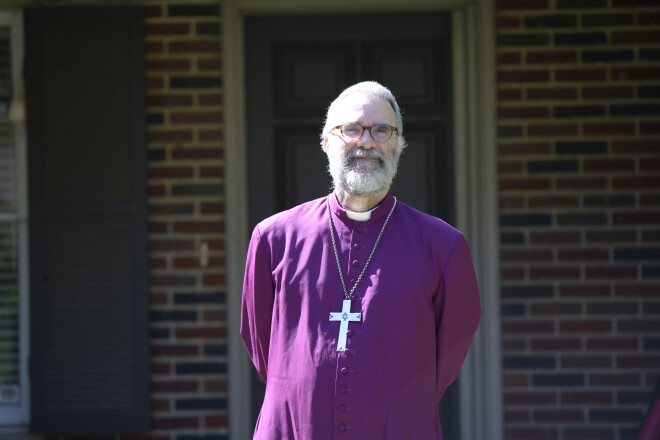Perpetual Forge of Idols

So John Calvin (whom I have been reading for my course at Nashotah House) described the human heart. Here he is hearkening back to the first chapters of Genesis, which is where we should start too. My high school motto was ‘finis origine pendet,’ ‘the end depends on the beginning,’ and that is true of the Bible too. Everything (except the name of Jesus of course), is already there. God is before everything created, which He made by His Word without any help from us, and which he remains sovereign over. As for us, we are made ‘in His image,’ which I take to mean that we are the creatures capable of and intended for His worship, on behalf of the whole creation. In other words, we are not part of the divine, nor possess any spark of His in us innately. We were created for this relationship with Him. Inherently we are not self-standing, and without him we are unsettled, searching (what Augustine famously calls ‘restless’). Of course the narrative turns in chapter 3 to the negative inverse of this in the story of the fall. Our sinfulness has, because of our being ‘in the image,’ a particular shape, namely the distortion of this Godwardness. Satan whispers to Adam that we should not obey, since God is only keeping us from being ‘like gods.’ And that is what the human heart really wants, the root of our corruption, the displacement of Creator by the created. To create ourselves, to be the masters of life and death, to worship ourselves: the word for this in the Bible is ‘idolatry,’ but it is not simply what pagan foreigners do, or our pagan ancestors did, but rather the ‘flip side’ of every human heart, the evil double of ‘the better angels of our nature’ (Lincoln). To return for a moment to Calvin, before he spoke of us as ‘forges of idols,’ he spoke of our possession of the ‘sense of the divine,’ what is sometimes called the ‘God shaped hole in the heart.’ Alas, they go together.
Idolatry is the term we as Christians, (whom the Epistle to Diognetus in the early Church called the ‘soul’ of society) need to meditate on at this time in our nation’s life. I have in mind the painful sight of the flags with JESUS and a fish symbol amidst the other insignia and banners, among them white nationalist and anti-Semitic and fascist, displayed by those who stormed the Capitol. The identification of the faith with any ideology or tribalism or nationalism is always misguided, but this one drastically so.
But if we start with the Biblical witness, and follow the thread theologically, there is more to be said, and the more is addressed to each of us where we live! Idolatry is not only what characterizes someone else, nor is it simply left behind upon conversion. As with the Pharisee and the tax-collector in the parable, it is too easy to parcel out ‘image’ and ‘fall’ in this way. It is as forgiven sinners, as recovering idolaters, that we live as Christians. If I may repair again to Reformation doctrine, Luther emphasized that we are Christians who remain ‘at once justified and sinners,’ every day of our lives, ever dependent on grace from the sinless One, growing spiritually at best inch by inch, ever suspicious of our own idolatrous hearts. I have those words of Luther’s, simul Justus et peccator, engraved on my episcopal ring, even as I recall the words with which every auricular confession concludes, ‘and pray for me a sinner.’ Amidst all the hard reckoning ahead, may this truth pervade our lives as the Church, for only so can we be the instrument of reconciliation which our Lord intends us to be.
Peace,
+GRS



